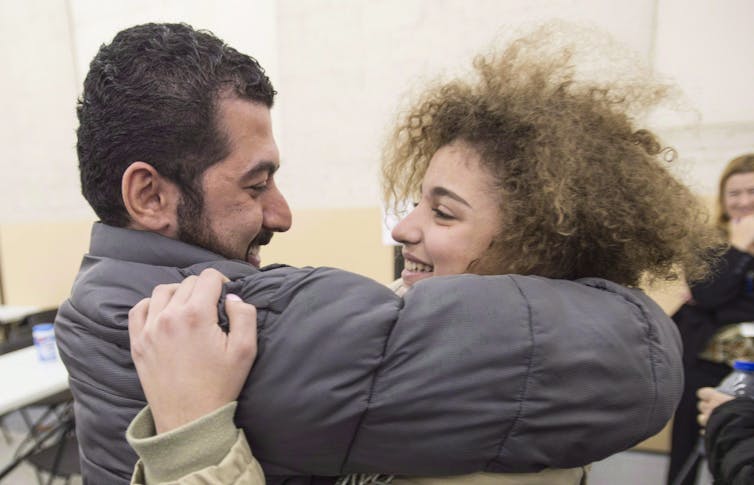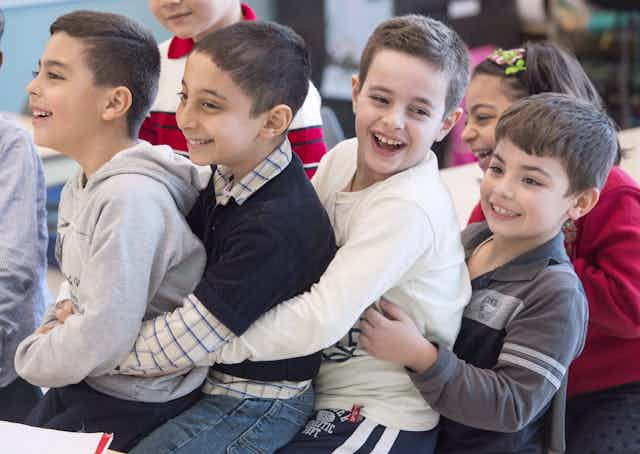For more than 40 years, Canada has been at the forefront of private refugee sponsorship. But in October 2020, the Québec government announced a partial suspension of refugee sponsorships in the province. Until Nov. 1, 2021, sponsorship organizations are not permitted to sponsor refugees to Québec.
Currently, Québec accepts 750 sponsorships a year. The suspension maintains this target, yet until November 2021, only groups of two to five people can privately sponsor a refugee rather than large sponsorship organizations.
Québec’s immigration department justified the suspension in the face of “serious allegations” of fraud within the program, without providing details, ostensibly to avoid prejudicing ongoing investigations. Yet sponsorship organizations were surprised by the decision and deplored the blanket punishment rather than targeted action.
The nature of the accusations leading to the October 2020 suspension is not known.
Québec operates its own immigrant selection, including refugee sponsorship, through an agreement with the government of Canada. The federal government has set aside a portion of its annual sponsorship targets for Québec since 1997.
Prior suspensions
This isn’t the first time the provincial government has suspended refugee sponsorship. In January 2017, following a surge of sponsorship applications in the wake of the Syrian refugee crisis, the intake of new sponsorship applications was suspended. Québec’s immigration regulations were amended to allow the immigration department to process existing applications, address concerns and establish a reporting procedure.
Sponsoring groups welcomed the suspension at the time, arguing it would allow the department to reform its “antiquated program.”
A year and a half later, in July 2018, an overall cap of 750 on new sponsorship applications was introduced, with specific quotas for sponsorship categories, such as 100 slots for applications by individual sponsor groups of two to five people. Applications were to be delivered to the immigration department on a first-come, first-served basis at a set date.
In September 2018 and again in January 2020, the policy resulted in professional couriers charging exorbitant fees to spend days waiting at the immigration department on behalf of private sponsors so as to be “the first in the line.”
Accusations of fraud by these companies ensued. To avoid day-long queues at the provincial immigration department, the Québec government has now announced it will replace the first-come, first-serve system with a lottery for admissible applicants.
The fact that only small groups of individuals can now sponsor refugees will be welcomed by some, considering 108 sponsorship spots, mostly reserved for regional sponsorship organizations, were left unfilled in 2020.
Calls for expansion
However, well-established and often faith-based sponsoring organizations with longstanding experience and familiarity with the program are stopped in their tracks even while the Montréal branch of the United Nations High Commissioner for Refugees (UNHCR) and other organizations have called for a significant expansion of provincial refugee resettlement.

Resettlement targets
At the federal level, the Liberal government’s 2021-23 immigration and refugee targets increase immigration. This commitment is important, because Canada currently resettles more refugees than any other country in the world and actively promotes private refugee sponsorship globally.
But the high number of private sponsorships in comparison with government-assisted resettlement raises questions about government responsibility and whether Canada’s program focuses on those refugees the UNHCR prioritizes for protection, such as refugees in need of physical and legal protection and survivors of violence or torture.
Canada’s leadership on resettlement is also due to the sharp decline in the United States under President Donald Trump. The U.S. had been the world’s resettlement leader.
The suspension in Québec and the gutting of the U.S. program highlight the vulnerabilities inherent in a voluntary program of refugee protection. Swift policy changes of the type we’re seeing in Québec underscore the discretionary nature of refugee resettlement programs worldwide and the limitations of legal safeguards.
There is also federal precedent for abrupt resettlement changes in Canada. In 2011, the Conservative government under Stephen Harper repealed a resettlement category that permitted direct resettlement from home countries known as the Source Country Class. It was the only class that applied to people who were still in their country of origin.
The timing of Québec’s move is worrisome. The COVID-19 pandemic has led to a temporary suspension of global refugee resettlement and made it almost impossible to claim asylum. Countries are closing their doors at a time when refugees remain trapped in congested and dangerous camps where the virus can easily spread.
Read more: Dispatch from a refugee camp during the COVID-19 pandemic
In July, a federal court ruled that Canada is violating the rights of the refugee claimants it returns to the U.S. under the Safe Third Country Agreement. In contrast to its support for private sponsorship, the Canadian government is appealing that decision.
Rather than creating obstacles to entry, governments should be working to make refugee admissions easier during the pandemic.


